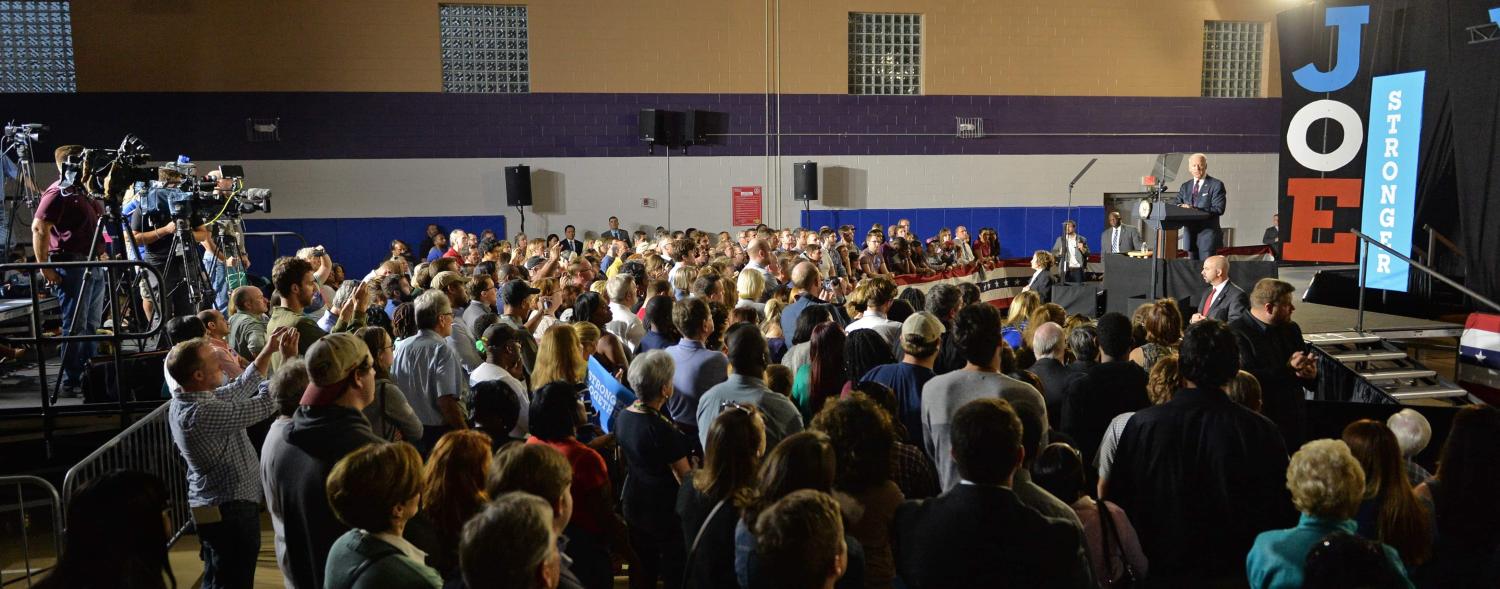US Vice President Joe Biden is sick of foreign leaders looking him in the eye and asking whether he can deliver.
In a speech delivered to keep the party faithful knocking on doors, checking on friends and family and generally doing whatever they can to get out the vote ahead of polls closing on election day, Biden varied some of the lines he used in an address in Sydney in July.
Then, he chose to remind his audience of the depth and breadth of America’s power. At the Democratic Party event in Charlotte, North Carolina, on Tuesday night, Biden admitted that this image needed a bit of work.
Biden said that after he negotiates an agreement with global leaders they all then ask him whether the Obama Administration can follow through because they understand the ‘dysfunction of our Congress’.
This is one reason why, Biden told his audience of grassroots activists, they didn’t want to wake up on 9 November wondering if they could have done a bit more to help get a few more people to the polls.
‘I’ve been in races here and elsewhere where we have lost by seven to 10 votes. We can’t afford to lose. We are so well positioned to get up and roar.’
North Carolina is attracting plenty of attention from both parties ahead of the election next week. The race for the state’s electoral college votes is a close run thing; Democrats are hopeful of winning back the governor’s mansion; the state’s Senate race is one of only six in the country where the distance between the two candidates in the latest polls is less than the margin of error; and House of Representatives seats are so closely fought that two opposing candidates reportedly came to blows at a car show on Saturday.
While electoral college votes will get either Hillary Clinton or Donald Trump into the White House, party numbers in the Senate and the House of Representatives will have a huge impact on how much they get done.
The gridlock that has frustrated the Obama Administration reflects increasing polarisation in the two-party system, explains Aaron M Houck, assistant professor of political science at Queens University of Charlotte.
In the past, the most conservative Democrat would have been less liberal than a liberal Republican, so if a president’s party did not control Congress, there was still the possibility of compromise to get bills through. Not anymore, however; there is no overlap. There are many factors at work here, Houck says.
'The incentives have changed. Individuals are rewarded for having more extreme positions – they get more media attention and more funding. So the checks and balances that were put in place to prevent any of the three branches of government from becoming too tyrannical can also be used by one branch, say the legislature, to ensure the executive, the president, does not get legislation through,' Houck said.
There is no guarantee this state of affairs will change after Tuesday. A Clinton victory could be accompanied by a Senate majority, if the Democrats get a net gain of four, but polls are tightening all over the country. And it could be a short-lived victory.
Republicans are urging voters to use the down-ballot contests to deliver a ‘check and balance’ on Clinton, and if that means government gets precious little done, so much the better. As Houck points out, when you are in favour of small government, ‘gridlock is not a dirty word’, especially if you are determined to block a president’s nominee for the Supreme Court. The current GOP-controlled Senate has kept Judge Merrick Garland, Obama’s choice to replace Antonin Scalia, in appointment limbo for the last six months.
Plenty of Republicans have pledged to keep the appointment at bay until their guy gets in to the White House. If Trump doesn’t succeed in his bid, they will hold out till the next election. In North Carolina, incumbent Senator Richard Burr is among the Republicans who have pledged to block Supreme Court nominees for another four years if necessary.
With so much at stake, Biden told his audience on Tuesday, it is all eyes on America.
'The only people who are more interested in the presidential debates than Americans have been are the rest of the world. What happens here matters to them. This is the most important election in our lifetime – and that goes for both millennials and people as old as me.'
Photo: Getty Images/Anadolu Agency

